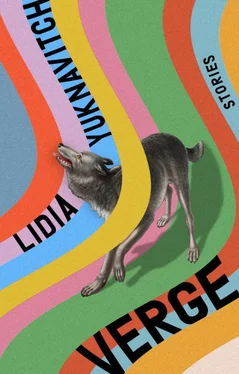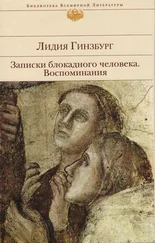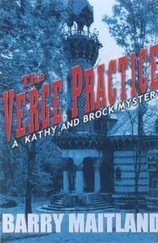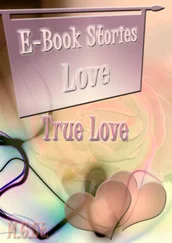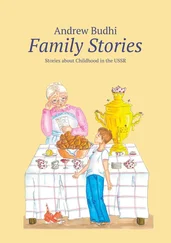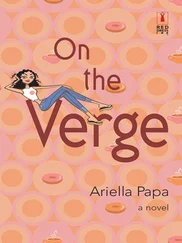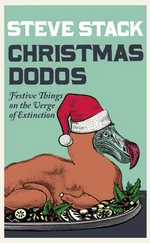Лидия Юкнавич - Verge - Stories
Здесь есть возможность читать онлайн «Лидия Юкнавич - Verge - Stories» весь текст электронной книги совершенно бесплатно (целиком полную версию без сокращений). В некоторых случаях можно слушать аудио, скачать через торрент в формате fb2 и присутствует краткое содержание. Город: New York, Год выпуска: 2020, ISBN: 2020, Издательство: Riverhead Books, Жанр: Современная проза, на английском языке. Описание произведения, (предисловие) а так же отзывы посетителей доступны на портале библиотеки ЛибКат.
- Название:Verge: Stories
- Автор:
- Издательство:Riverhead Books
- Жанр:
- Год:2020
- Город:New York
- ISBN:978-0-52553-487-7
- Рейтинг книги:4 / 5. Голосов: 1
-
Избранное:Добавить в избранное
- Отзывы:
-
Ваша оценка:
- 80
- 1
- 2
- 3
- 4
- 5
Verge: Stories: краткое содержание, описание и аннотация
Предлагаем к чтению аннотацию, описание, краткое содержание или предисловие (зависит от того, что написал сам автор книги «Verge: Stories»). Если вы не нашли необходимую информацию о книге — напишите в комментариях, мы постараемся отыскать её.
A fiercely empathetic group portrait of the marginalized and outcast in moments of crisis, from one of the most galvanizing voices in American fiction. cite
Verge: Stories — читать онлайн бесплатно полную книгу (весь текст) целиком
Ниже представлен текст книги, разбитый по страницам. Система сохранения места последней прочитанной страницы, позволяет с удобством читать онлайн бесплатно книгу «Verge: Stories», без необходимости каждый раз заново искать на чём Вы остановились. Поставьте закладку, и сможете в любой момент перейти на страницу, на которой закончили чтение.
Интервал:
Закладка:
In the night, strange visions made a fist of his brain, twisting his thoughts toward his greatest challenge. His city was inorganic, artificial in every sense. He’d been ignoring the fact of it, having taken such joy in the world of objects and design. Surfaces. He’d made no attempt to render nature: no miniature trees, water, dirt, worms, rot, or any of the elements that make up a world. He’d concentrated solely on the artificial, the built environment, and the science required to hold it up. The arm entered his dreams not as an arm but as an argument, as a logic of the organic and the biological. The arm had a mouth and spoke to him clearly. There is no life without death, the arm said, organic and perfect . In the middle of the night he woke and added some bleach to the whiskey, a little cocktail. His lips puckered and burned. A sore formed quickly in his mouth. He vomited, his throat on fire, and fell back to the floor.
When he awoke late the next morning, he had not a hangover but a clarity of vision as sharp as a diamond lodged in the center of a skull. He understood with full force the error he had made, with his little city on the table, with his lack of drive, with his life. He saw with bright white light that his entire existence had been leading up to a single moment, that he’d very nearly blinked and missed it, the way we often do in our lives, droning along in what’s ordinary and familiar, missing the moment at hand even when everything in the universe is pointing the way toward sight. He saw that his superficial efforts with refuse were the key, that decay itself was the giver of life, the secret of the universe, the place from which all stars collapse and all systems tower and all logic gets born and then falls.
He’d simply mistaken the act for the thing itself.
He stared at the darkening, shrivel-skinned arm. He poured himself another cocktail and drank. Still coughing, he headed back to his city, thinking of all the death it takes for life to flourish.
He laid himself down on the dining room table alongside the new city, his arm next to the dead one, and thought of all the teenagers in the Destination Sky Planetarium, seething and coupling, and he cradled the arm, slightly blue and stiff, in the crux of his own, and he closed his eyes to the world and readied himself, not for sleep but for alchemy—for the shifting of molecules, the transmutation from solid to another form, from metal to gold, or liquid, or the speed of light itself.
SECOND LANGUAGE
Sometimes she understood herself, in this new place, as a body inside out. A body no longer contained, leaking meanings. She tucked in the corners of her face and went back out into the world, knowing that the bloodstreaks in the street behind her would repulse at least some bystanders.
The blue veins standing out in her neck and at her temples made her look eerily like a map of Siberia. Even though in this place she knew that the word “Siberia” did not signify, somehow she took comfort in the Siberian look of her neck and temple veins; just thinking of it made her walk with a slightly straighter spine, a girl of the North. Though some people she passed looked at her with a kind of disaffected latte pity, it made a lot of sense to her. Her mother, grandmother, and great-grandmother had been Lithuanian, had survived winters, had been sold to Russians, had died in white and cold and poverty, and so a vast white expanse with rivulets of black and blue was a concept she understood. Didn’t land look that way to birds on great journeys? Birds had outlived the Ice Age. Perhaps my body is like a place seen from the sky, she thought. She looked up. Then she returned her gaze to the faces of this American city.
She had a vague understanding that her insides were visible on the outside—and how unfamiliar that appeared—but what were exposed capillaries and dangling entrails compared to the wallets of businessmen jutting from the asses of their fine suits, or the violently painted lips of women whose hairstyles and manicures rivaled their mortgage payments?
She looked up. Gray sky, gray buildings. Concrete with wind. At least there were trees here. Trees never lie. But where in the world, she wondered, were the graywolves?
Pulsing outward, she made her way to the front man whose address she’d been given when she arrived, after crossing over from Canada in a white-painted popsicle truck. Girls like popsicles driven over stitched borders between nations. Apparently this kind of front man did not regard an inside-out girl as unusual or damaged. “Are you at least a C cup?” the man on the phone had asked. She still had her use value in this place, is what she understood him to mean. Her heart hidden behind the new pillows of her adolescence.
The front man lived near a freeway—what freedom was it meant to have?—in a snot-colored two-story house with black plastic in the windows where curtains should be. When she knocked on the door, her throat cords braided and her vertebrae clattered. The man who answered the door looked to be in his late teens. Older than her. Inside were more girl popsicles, most of them around twelve or thirteen by the look of it. One might have been fourteen, but height wasn’t necessarily a sign of age. At least two of them looked young enough to need mothers. She stared at the melting popsicles, her kin, all of them with too-thin, too-white wrists wound with bulging blue rivulets. But the television in the living room bombarded her senses with image and sound in waves. She bit down on her tongue enough to feel it.
Good blood in a mouth. A warm that delivers you, that returns you.
Days went by, enough to create time.
She ate.
Slept.
And in the evenings, every evening, she was delivered to some new address.
Each address had an old gray man billionaire with money enough for a girl’s body and threat enough to take her life.
The pretend pretty of the Portland city all around her days: disposable cartons and plastic and paper and coffeecoffeecoffee and black clothes and bike lanes and funny little hats and eating and driving and thousands of kinds of potato chips. Whole aisles at grocery stores devoted to potato chips, salty ones and square ones, greenblueyellowred ones, chips with pepper and chips with vinegar and some with “bar b q” flavor, red with salty dye. Coffee spilling from the mouths of hundreds of shops and beerbeerbeer everywhere and strip clubs outnumbering McDonald’s. She wondered if all these regular well-dressed people walking around like Bic lighters had been to the strip clubs or if she was the only one. If they did go, were they the same after? Her emotional circuitry was interrupted every time she took off her clothes.
Of the land in this Portland, there were mountains, and she remembered that terrain could still overtake human lives. She wished she could hear their stories, but she couldn’t from where she was, boxed here.
She saw the lively mouths and freshly sculpted bodies and the surface sheen of the people in this city, she saw their righteous bicycling circles and their coffee corners and the neon signage and the stutter of bridges over incarcerated rivers. Still, even walking the sidewalks, smelling the pee and rotting food mixed with car exhaust and wet leaves and dirt, she could see that money and consumption were what the place was made of. Everyone seemed to be worth so much. How did they wear their I ’s so easily?
Sometimes while walking, she witnessed animal behavior: blue jays adopting different languages, gardener snakes S-gliding over concrete into their shrub havens. The cacophony of frogs under overpasses near streams or gutters. Walking nowhere reflected back to her a sense of nonbeing she could live with. Sometimes she stopped to sit in the dirt, and an old beer would tumble by. Coors, it said.
Читать дальшеИнтервал:
Закладка:
Похожие книги на «Verge: Stories»
Представляем Вашему вниманию похожие книги на «Verge: Stories» списком для выбора. Мы отобрали схожую по названию и смыслу литературу в надежде предоставить читателям больше вариантов отыскать новые, интересные, ещё непрочитанные произведения.
Обсуждение, отзывы о книге «Verge: Stories» и просто собственные мнения читателей. Оставьте ваши комментарии, напишите, что Вы думаете о произведении, его смысле или главных героях. Укажите что конкретно понравилось, а что нет, и почему Вы так считаете.
